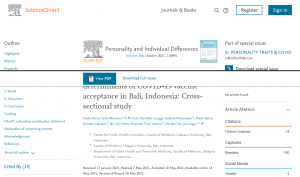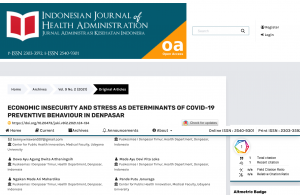
Objective: This study aimed to investigate association between conspiracy beliefs, trusts in media and authoritative information sources, with COVID-19 vaccine acceptance. Methods: We conducted online survey on adult resident of Bali Province, Indonesia in September 14th to October 31st 2020 collecting data on demographics, impacts of the pandemic, conspiracy beliefs, trusts in conventional media and authoritative sources, as well as vaccine acceptance. We conducted bivariate and multivariate analysis for determinants of vaccine acceptance with SPSS 23.0. Results: We recruited 779 respondents with 38.9% male and median age of 24 years old (IQR 20 – 26). The result showed vaccine acceptance of 60.8%. Vaccine acceptance was correlated with conspiracy beliefs, trusts in conventional media and authoritative sources with Spearman's rho of 0.350, 0.269, and 0.287 respectively. Controlling for demographics and impacts of pandemic, showed strong conspiracy beliefs and trust in conventional media as the only independent determinants with OR of 0.33 (CI95% 0.20–0.54) and 1.91 (CI95% 1.37–2.65) respectively. Conclusion: The results indicated considerable impacts of infodemic, represented by conspiracy beliefs, trust in media, and in authoritative sources, toward COVID-19 vaccine acceptance. Effective public health messaging should be conducted concurrent with vaccine rollout to improve acceptance and achieve herd immunity.









Enable comment auto-refresher